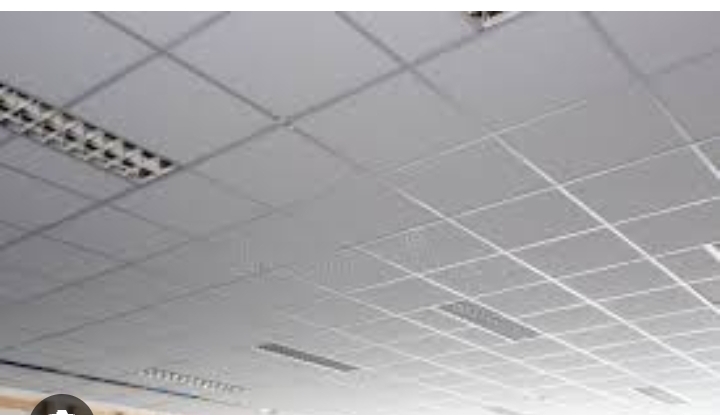suspended ceiling price in nigeria
Suspended ceilings, also known asl interior design and construction. This innovative architectural feature offers a range of benefits, but like any design choice, it comes with its own set of disadvantages. In this comprehensive article, we will explore what a suspended ceiling is, delve into its benefits, and examine its drawbacks, providing you with a clear understanding of this versatile design element.
Table of Contents
What is a Suspended Ceiling?
A suspended ceiling is a secondary ceiling hung below the original or structural ceiling of a room. Typically constructed using a grid of metal or wooden framework, suspended ceilings consist of ceiling tiles or panels that fit into the grid. These tiles are often made from materials like mineral fiber, gypsum, or metal. Suspended ceilings are known for their versatility as they can be used in residential, commercial, and industrial settings.
Benefits of Using a Suspended Ceiling
Aesthetic Appeal:
Suspended ceilings offer a wide range of design possibilities. They can be customized to match the interior decor of a room, providing an aesthetically pleasing finish. Various styles, colors, and textures of ceiling tiles are available, allowing for creative design choices.
Easy Access:
One of the most significant advantages of suspended ceilings is their ability to conceal utility lines, pipes, ducts, and electrical wiring. These elements can be hidden above the suspended ceiling, providing easy access for maintenance and repairs without disrupting
,P entire ceiling.
Acoustic Control:
Suspended ceilings can significantly improve acoustic performance in a space. Acoustic ceiling tiles are designed to absorb sound, reducing noise levels and creating a more comfortable environment, especially in commercial buildings and offices.
Thermal Insulation:
Some suspended ceiling systems can enhance thermal insulation, contributing to energy efficiency by reducing heat transfer and maintaining comfortable indoor temperatures.
Fire Resistance:
Many suspended ceiling materials are fire-resistant, which can enhance the overall safety of a building by slowing the spread of fires.
Lighting Options:
Suspended ceilings can incorporate various lighting options, including recessed lighting, LED panels, and decorative fixtures, allowing for creative and functional illumination.
Disadvantages of Using a Suspended Ceiling
Reduced Ceiling Height:
The installation of a suspended ceiling can lower the overall ceiling height, which may not be ideal for spaces with limited vertical clearance.
Cost:
While suspended ceilings offer numerous benefits, they can be more expensive to install than traditional drywall ceilings due to materials and labor costs.
Dust and Allergens:
Over time, dust and allergens can accumulate on the surface of ceiling tiles, requiring regular cleaning and maintenance.
Limited Load-Bearing Capacity:
Suspended ceilings are not designed to support heavy loads. Hanging objects or equipment from the grid can compromise the ceiling’s structural integrity.
Moisture Sensitivity:
Some ceiling tile materials, like gypsum, can be sensitive to moisture. In environments prone to high humidity or water leaks, this can be a disadvantage.
How Long Does it Take to Install a Suspended Ceiling?
Installing a suspended ceiling involves several steps, including planning, framing, installing the grid system, and adding ceiling tiles. The time required for installation depends on various factors, such as the size of the room and the complexity of the design. On average, a suspended ceiling installation in Nigeria can take anywhere from a few days to a couple of weeks for larger projects. The installation process may also be influenced by the availability of skilled labor and materials.
Suspended Ceiling Prices in Nigeria:
The cost of suspended ceilings in Nigeria can vary widely based on several factors, including the type of materials used, design complexity, and the size of the area to be covered. Generally, suspended ceiling prices can range from ₦3,000 to ₦10,000 per square meter.
Where to buy Suspended Ceiling in Nigeria
Authentic Roofing Company
Stone Coated Roofing Tiles & Doors
Best Roofing Materials Limited
Ebeosi Nigeria
Roofing World
Suspended ceilings are a versatile design option that offers numerous benefits, including aesthetic appeal, easy access for maintenance, improved acoustics, and more. However, they also come with disadvantages such as reduced ceiling height and installation costs. When considering a suspended ceilpking for your space, it’s essential to weigh the pros and cons to determine whether it aligns with your specific needs and preferences. Ultimately, suspended ceilings have the potential to transform the look and functionality of a room, making them a valuable choice in the world of interior design and construction.
kreeiirk

